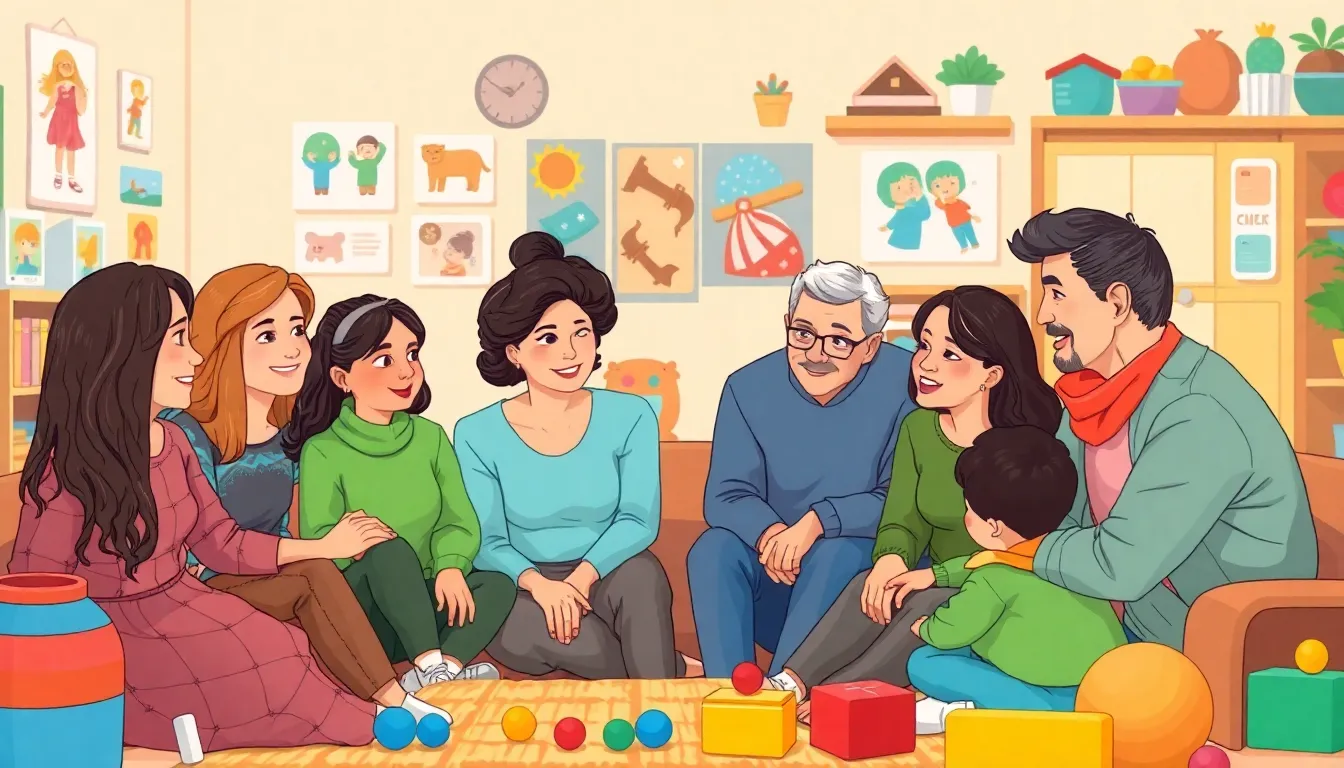Raising a child is a wild rollercoaster ride, but for parents of special needs children, it’s like strapping in for a ride that’s got a few extra loops and unexpected drops. These parents don’t just navigate the usual challenges of parenting; they tackle a unique set of obstacles with creativity, humor, and a whole lot of love. From deciphering the latest therapy jargon to mastering the art of the perfect sensory-friendly snack, they’ve got skills that would make any superhero jealous.
But it’s not all serious business. The journey is filled with moments that spark laughter and joy, reminding everyone involved that life is about celebrating the little victories. Whether it’s a hard-fought milestone or simply a day that goes smoothly, these parents know how to find the silver lining. Join us as we explore the incredible world of special needs parenting, where resilience meets heart, and every day is an adventure worth sharing.
Table of Contents
ToggleUnderstanding Special Needs
Special needs encompass a range of physical, developmental, emotional, and learning disabilities. Parents navigate various challenges when raising children with special needs, often requiring specialized education and support services.
Definition and Types of Special Needs
Special needs can arise from many conditions. Examples include autism spectrum disorder, attention deficit hyperactivity disorder (ADHD), and cerebral palsy. Each type presents unique requirements that affect daily living and learning capacities. Developmental delays, sensory processing disorders, and learning disabilities also fall under this category, highlighting the diversity of experiences among special needs children. These conditions impact social interactions and academic performance, necessitating tailored approaches in caregiving and education.
Common Myths About Special Needs
Misunderstandings about special needs persist in society. One prevalent myth suggests that all children with special needs are the same; this fails to recognize the individuality of each child. Another misconception claims that special needs means a complete inability to learn or engage socially, overshadowing the unique strengths these children often possess. Parents face these misconceptions often, leading to challenges in finding support and acceptance. Dismissing the myth that all special needs children require constant assistance, many are capable of developing independence with the right support and resources.
The Journey of Parents of Special Needs Children

Parents of special needs children face profound challenges and experiences. Their journey involves navigating complex emotions and unexpected situations.
Initial Reactions and Feelings
Initial reactions can range from shock to deep emotional turmoil. Many parents experience a sense of disbelief upon receiving a diagnosis. This reaction often transitions to feelings of sadness, anger, or isolation. Realizing their child’s needs can provoke fear about the future. Acceptance occurs gradually, and often, love becomes a driving force for resilience. Parents frequently discover new depths of strength as they adapt to their child’s unique journey. Building connections with other parents experiencing similar challenges fosters solidarity and understanding.
Coping Strategies and Support Systems
Coping strategies vary widely among parents. Many find solace in support groups, where shared experiences create a sense of community. Seeking professional help, including therapy, often assists in processing emotions. Developing routines helps establish stability for both the parent and child. Engaging in self-care practices, such as exercise or hobbies, supports mental and emotional health. Families often utilize specialized educational resources to navigate their child’s unique requirements. Effective communication with teachers and therapists enhances the development of tailored strategies that nurture growth.
Resources for Parents of Special Needs Children
Parents of special needs children can access diverse resources tailored to their unique situations and needs.
Educational Resources
Educational resources encompass various tools and programs designed to support learning. Special education classes focus on individual growth and development. Federal laws, including the Individuals with Disabilities Education Act (IDEA), ensure access to free and appropriate education. Therapy services, such as speech or occupational therapy, help children meet specific milestones. Online platforms, including Khan Academy and Coursera, provide supplemental learning materials. Local libraries frequently offer inclusive programs and workshops too.
Support Groups and Communities
Support groups and communities play an essential role in fostering connections. Local organizations often organize regular meetups for sharing experiences and resources. Online forums, such as those on Facebook or Reddit, enable parents to seek advice from others in similar situations. Nonprofits, like The Arc, advocate for special needs parents and provide vital information. Engaging in community activities strengthens relationships and builds support networks. Regular interaction with other families can enhance emotional resilience.
Advocating for Your Child
Advocating for a special needs child involves a thorough understanding of rights and effective communication techniques. Parents often seek to ensure their child’s educational and emotional needs are met.
Understanding Rights and Legislation
The Individuals with Disabilities Education Act (IDEA) provides essential rights for special needs children. This legislation ensures they receive appropriate educational services. Parents must understand these rights to advocate effectively. Familiarity with Individualized Education Programs (IEPs) is crucial for tailoring education to specific needs. Parents may also access accommodations under Section 504 of the Rehabilitation Act, which prohibits discrimination. Resource guides are available to help navigate these laws and promote children’s rights in educational settings.
Effective Communication with Educators
Effective communication fosters strong partnerships with educators. Parents should approach meetings with specific goals and data to share. Starting conversations about their child’s strengths and challenges sets a positive tone. Seeking regular updates from teachers ensures consistency and promotes collaborative strategies. Parents must also ask questions to clarify any concerns about their child’s progress. Building rapport with educators enhances trust and teamwork, leading to better outcomes for the child. Open dialogue creates an ongoing opportunity for feedback and adjustments to support the child’s learning effectively.
Parents of special needs children embody resilience and strength. Their journey is filled with challenges but also rich with love and creativity. By embracing each moment and celebrating small victories, they create a nurturing environment where their children can thrive.
Building connections with other parents and utilizing available resources can make a significant difference. Advocacy plays a crucial role in ensuring that children receive the support they need. Through effective communication with educators and therapists, parents can tailor strategies that promote growth and independence.
Ultimately, the unique experiences of these parents highlight the importance of understanding and acceptance within society. Their dedication not only shapes their children’s lives but also paves the way for a more inclusive future.




